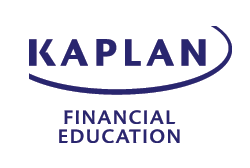
*NOTE: Once registration is complete, please allow 2-3 business days for online access to be available to you.
Please contact Jennifer Coppock at jscoppock@bauer.uh.edu if you have any questions.
Or register now* for the first course.The C. T. Bauer College of Business, in partnership with Kaplan Financial Education, are providing the Executive Certificate in Financial Planning. This broad-based financial planning curriculum can be the cornerstone of a rewarding career that allows you to help others in your community achieve their financial goals through sound financial planning.
This course is an introduction to the concepts and profession of personal financial planning. The student will gain an understanding of the role and responsibilities of a financial planner, along with some analytical skills to aid in financial decision-making. Topics in the course include the financial planning process, securities regulation and licensing, CFP Board ethics, the economic environment, the time value of money, and planning for special situations such as a college education, the formation and operation of a closely held business, and disability. The course also previews wealth accumulation, tax, retirement, and estate planning techniques. Register >
This course considers risk management principles and the various types of insurance coverage in the marketplace today, focusing on the role of planning for insurance needs. Insurance topics include life, medical expense, and property/casualty policies, as well as long-term care and disability. It also covers benefits made available to employees by employers—commonly referred to as employee or fringe benefits. Employee benefit topics include group policies, deferred compensation, equity-based compensation, and business applications of life insurance. Register >
This course introduces risk-return concepts, debt and equity securities, and options and futures contracts. The course uses a Portfolio Project to evaluate the array of financial instrument investment alternatives and their risk profile. Participants analyze expected return characteristics, individually and in combination within a portfolio. Different investment strategies and valuation models are used to understand basic investment principles and practices. Register >
This course reveals effective income tax planning strategies, whether personal or related to an individual’s business interests. Topics covered include individual income tax calculations, deductions, the tax characteristics of various business entities, trust and estate taxation, basis of property and cost recovery, property dispositions, passive activity losses, at-risk rules, miscellaneous taxes, interest on deficiencies and refunds, penalties, accounting methods, accounting periods, and tax management techniques. Register >
This course covers determination of the retirement savings need and subsequently considers both government and employer-sponsored methods of providing for one’s retirement. Distribution options from corporate retirement plans are reviewed as well as the suitability of an investment portfolio in ensuring a comfortable and profitable retirement. Register >
Once the wealth accumulation process is complete, distributing excess wealth is a primary goal for many financial planning clients. This course presents the challenges of effective estate planning raised by tax code changes. It begins with a consideration of the estate planning process and the documents of transfer. The course then addresses the unified transfer tax system and the calculation of an individual’s estate tax liability. Estate planning techniques, such as trusts, marital and charitable deduction vehicles, and intra-family business and property transfers, are then discussed. The course ends with a consideration of postmortem tax planning. Register >
The final course of the program will involve case analysis and the integration of the six major areas of personal financial planning, which include:
ABOUT US: Mini-MBA | Earn a Certificate | Custom Programs | Online Courses | Newsletter | Brochure | Polices | LinkedIn | Facebook | Twitter
CONTACT US: Cheryl Baldwin, Director:, 713-743-8984 | Adina Dawoodi, Program Manager